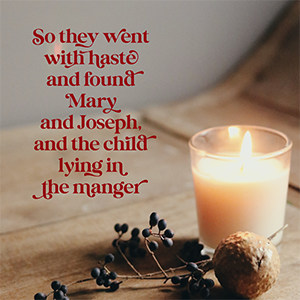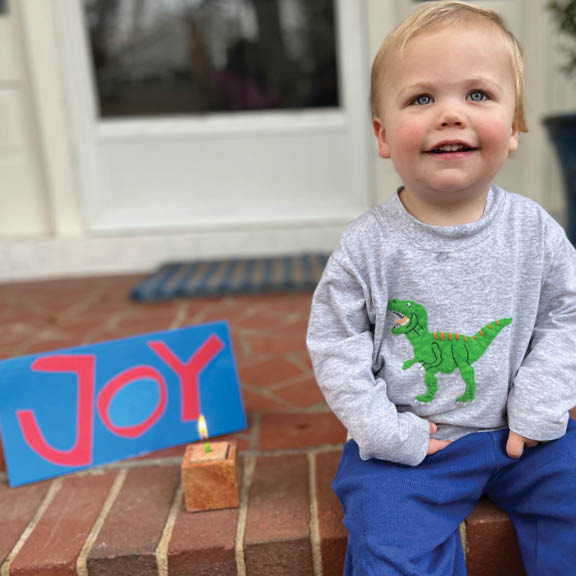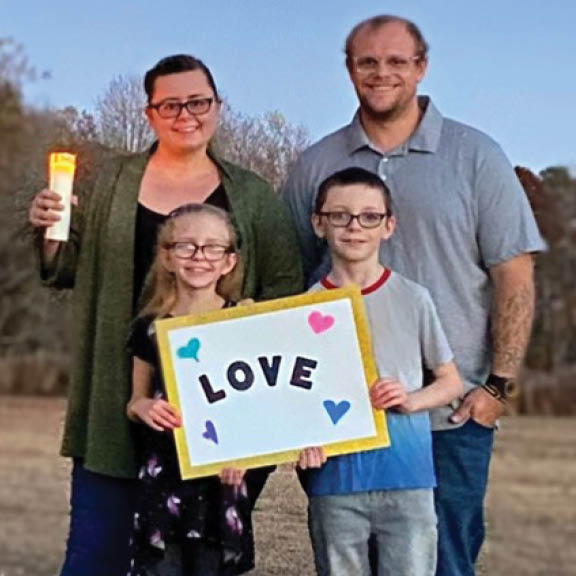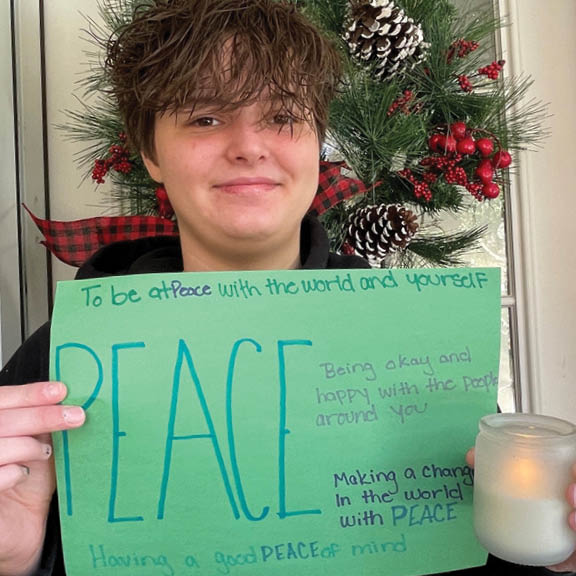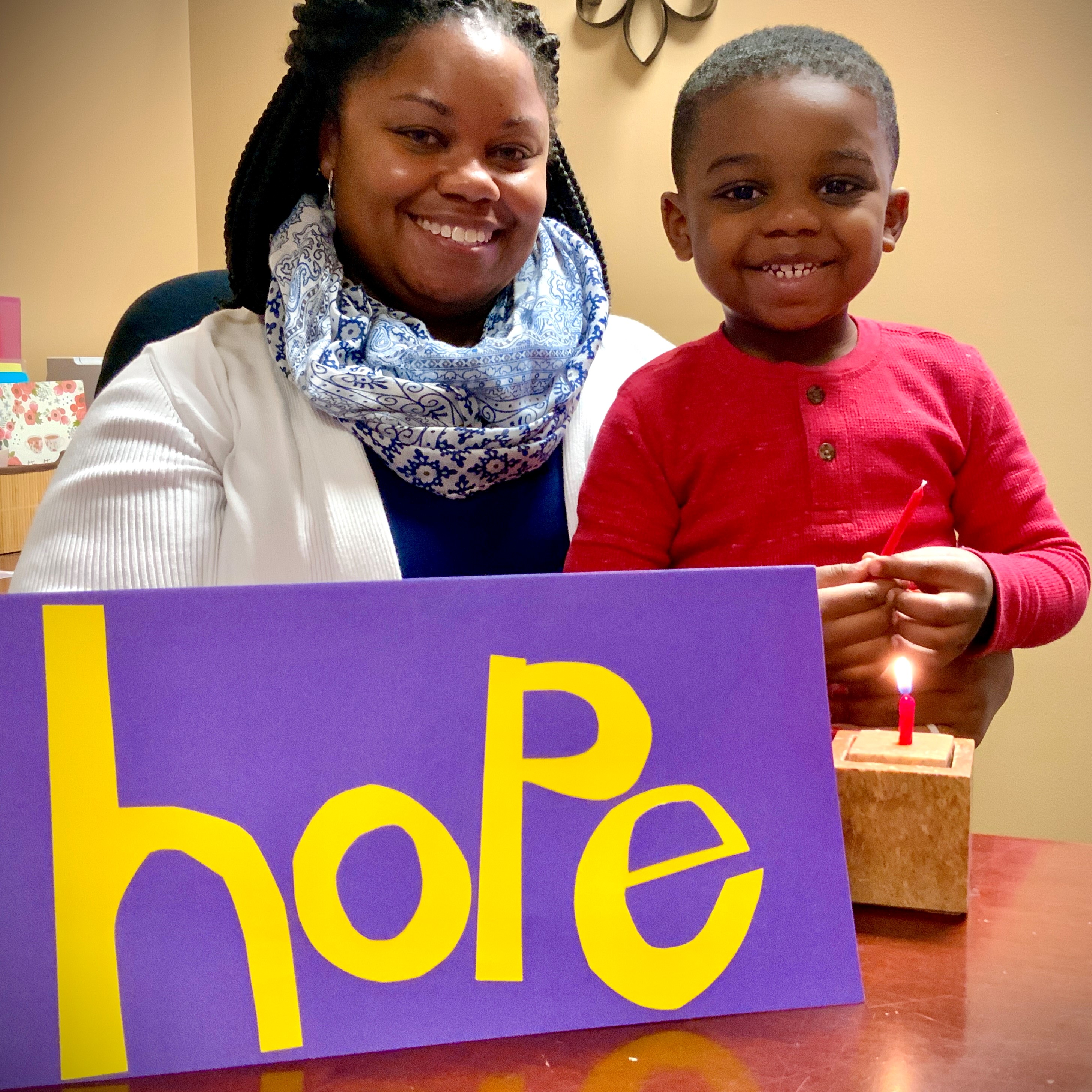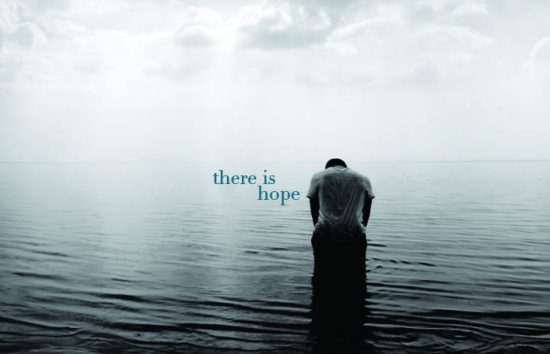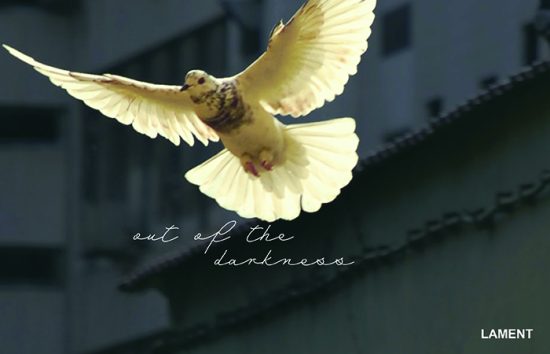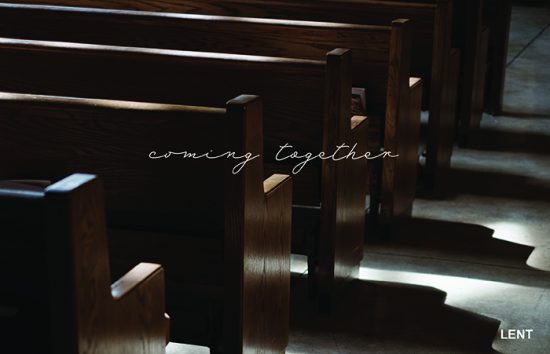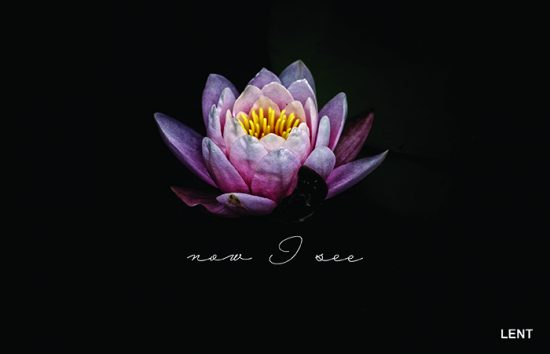In Christ we find hope, peace, love, and joy. May we celebrate his birth by following in his footsteps. Happy Christmas to all.
Author: Pam Powell
Advent | The joy of joy
He may be too young to understand everything, but this child knows joy. “Joy is in my heart,” he told his mom, “because Jesus is in my heart.” Light a candle for joy.
Jesus said, “Let the little children come to me, and do not hinder them, for the kingdom of God belongs to such as these.” Mark 10:14
Advent | The gift of love
We introduced this wonderful family to you over two years ago. They have a beautiful story – and our favorite part is when the parents tell us they loved the children before they even met them. Join us as we light a candle for love.
Advent | The promise of peace
Last week as we sat together and talked about peace, one of our teens shared her thoughts. “To be at peace with the world and yourself means being ok and happy with the people around you. We can change in the world with peace.” Amen and peace to us all. Join us as we light a candle for peace.
Advent | The power of hope
What is hope? For this Jordan Center family, hope is believing there are opportunities; believing there will be light. Christ is coming and our hope is alive. Join us as we light a candle for hope.
The darkest of days
Pilate entered the Praetorium again and called Jesus and said to him, ‘Are you King of the Jews?’ Jesus answered him, ‘Do you say this of your own accord or did others say it to you about me?’
John 18:33-34
The mob howls outside, but here in the palace, all is calm. Pilate speaks quietly and thoughtfully with Jesus. He then steps through the curtain onto the balcony and addresses the noisy, angry crowd. Pilate returns to Jesus inside the cool stone room and then goes again out onto the balcony. Back and forth. Chaos and calm.
As he moves between planes, Pilate tries to discern who is this man that has been called ‘King of the Jews.’ Tension mounts.
There is tension between Jesus and Pilate, Pilate and the crowd, and tension within Pilate himself. As the story is told through action and dialogue, the violence escalates and, in the final twist, Pilate orders Jesus to be turned over to the troops and be crucified.
In this story, the true nature of God is revealed.
While the crowd’s mood changes from Palm Sunday (‘Hosanna!’) to Maundy Thursday (‘Crucify him!’), Jesus does not change. Whether Jesus is in quiet conversation or confronted by a screaming throng, he remains yet God. The crowd in Jerusalem for the Passover are like all crowds, fickle. Jesus is constant.
While Pilate prevaricates and shades the truth, Jesus proclaims. Even as Jesus is being handed over he remains resolute. No amount of torture or threat can prevent his will being done. The sacrifice upon the cross for us all reveals the great truth of God.
For God so loved the world that he sent his only begotten son, and whoever lives and believes in him will not die.
John 3:16
It is hard for non-Christians to grasp, but on this the darkest of days we hear the Good News of the Gospel. His sacrifice and our salvation are joined together. The nature of God is revealed. God’s heart is full of love, joy, grace, patience, and sacrificial giving. Jesus is revealed as being unchanging, unfailing, and full of grace overflowing.
As we worship this night, let us give thanks for his great gift of salvation and eternal life.
Rev. Bruce Stanley, President / CEO
A Lament for Good Friday
“While they were eating he said, ‘Truly I tell you, one of you will betray me.’ They were very sad and began to say to him, one after the other, ‘Is it I?’ Jesus said, ‘One who has dipped his hand in the bowl with me will betray me.’ ”
Matthew 26:21-23
Anyone who commits to taking the suffering, death, and resurrection of Jesus seriously must spend time in unsparing self-examination on Good Friday. Having observed the Last Supper, we awakened this day of Christ’s crucifixion to somber reflection. During the Last Supper, Christ pointedly spoke about his betrayal. Each of the 12 asked the same question, “Am I the one?” Jesus didn’t answer them individually. He said simply that one who has dipped their hand in the bowl with me will betray me.
Across the years we have tried to offload culpability and blame upon Judas of the Sicarii and use him as scapegoat. However, if we are honest with ourselves and each other, we must confess that we, too, have committed acts of betrayal. We have shared in the Last Supper – we have taken the bread and wine and dipped our hand in the bowl. Jesus knew then and knows now. It is not simply “Am I the one?” It is everyone. We have not simply put our hand in the bowl; we are sadly much more deeply involved.
I don’t write this to make any who suffer from self-loathing or depression feel even more helpless and hopeless. Rather this is an invitation to hope.
To claim the gift of forgiveness, we have to honestly address our shortcomings. We may not have committed the spectacular act of betrayal that Judas did. We may not have committed the public act of denial that Peter did. Yet we all betray and deny Jesus in some way. We do it when we have a scarcity mentality instead of an abundance mentality. We do it when we fall into fear instead of living in faith. We do it when we trust more in our own ability than in God’s power. We do it when we judge other people, when we trample on the environment and creation, and when we have resentful attitudes.
I wonder if Jesus would really have liked to answer their question, “Is it I?” with a simple “Duh.” Twelve times – Duh, Duh, Duh, Duh.
On this Good Friday we strive to achieve holiness. Let us confess freely that even the best among us still have at least residual resistance to the Grace and Will of God. I invite you to give over to God all error in action and untoward impulse in thought. May we empty our hearts and minds of regret and remorse so that the sacrificial love displayed upon the cross can pour in to the resulting emptiness.
May we emerge out of the darkness of these days.
Bruce Stanley
Lent 5: Coming together
And the Lord asked, ‘Son of Man, can these bones live?’ Ezekiel 37:3
When Ezekiel was given this vision by God, Israel was at one of her lowest points. The Babylonians had taken Jerusalem’s best and brightest back to Babylon. Not only were these Jews being held captive, they were being integrated into Babylonian life and being raised as other than Jews. Meanwhile, Jerusalem was a barren mess. Jews there were living with fear instead of faith and their hearts were full of despair rather than devotion. To both the suffering and bewildered Jewish diaspora and the Jews remaining in Israel, God spoke these powerful words of hope: I will bring you back.
Ezekiel’s vision is eternally contemporary.
In the United States it resonated with the ones whom we held captive. Our slaves, suffering horror unimaginable to most, found hope in Ezekiel’s words. They fashioned a song, “Dem Bones Gonna Rise Again” that was sung as both lament and encouragement. The song captures the components of Ezekiel’s vision: human bones, scattered and torn asunder; the sound of rattling as bone joins bone; the blowing, flowing wind as God breathes life to the bones.
This Lenten Season we find ourselves in isolation, torn from corporate worship, places of work, and even apart from family members whom we cannot hug or even visit. We ask, “Can these scattered remnants of a once proud people find life again?” How can we come together, remain connected, so that we can live.
I am full of hope as I see winds of change blowing through our land. A Sunday school class at Edenton Street UMC stays in touch with some of the church’s elderly by dropping off meals to their homes. It is not ideal that the meal must be left outside, yet it is a great way to connect. One of our neighbors has decorated their carport pillars with balloons so those out walking can see that hope springs forth. Others have pulled their Christmas lights back out of the attic as Advent and Lent collide. If you have tried to connect using Free Conference Call, Google, Zoom, or other platforms you may have experienced difficulty with access as their servers are overloaded with persons needing and wanting to communicate.
Ezekiel’s prophetic word is clear. Things have fallen apart and the people have become scattered. Can these bones live again? With confidence that God is sovereign and God’s will cannot be prevented, we answer a resounding yes. We join our voices and sing, “Dem bones gonna rise again!”
Bruce Stanley
Lent 4: Healing and hope
As he went along, he saw a man blind from birth. His disciples asked him, “Rabbi, who sinned, this man or his parents that he was born blind?” “Neither this man nor his parents sinned,” said Jesus, “but this happened so that the works of God might be displayed in him.” John 9:1-3
There is much noise and clutter in this Gospel lesson for the fourth week of Lent and it can make it difficult to hear the Good News.
We hear authentic questions of theodicy – how to account for evil in a world God pronounced good at creation. Keep reading the passage and you’ll find conflict about healing on the Sabbath and the refusal of bystanders to identify the one healed (“It could be … or it looks like him”).
Contributing to the distractions is the process of the healing itself. Jesus heals the man, yes, but he performs the healing in three stages. First he spits into the ground and forms a poultice. Next he applies the poultice to the man’s eyes. Then he instructs the man to wash it off in the Pool of Siloam.
We know Jesus raised the dead with a simple verbal command (Lazarus) and by the touch of his hand (the son of the widow of Nain). Why then this elongated and elaborate process?
In the midst of raised voices and pointed questions, there comes utterance that has rung across the ages with clarity and hope. When it is (finally!) his turn to talk, the man healed of his blindness declares with straightforward power, “One thing I know: I was blind and now I see.”
Today we too find ourselves in a time of loud noise and clashing voices. We find ourselves wanting the threat from Covid19 to be over quickly, even immediately. We don’t want to endure process or go through stages of isolation, diagnoses, and quarantine. We want to see the end of this so desperately. Returning to the passage in John, we are not told the age of the man who regained his sight. Had he waited 18 years? 30 years? Longer?
I cling to the man’s declaration. God is indeed with us, though we may now be blind to where and how God is at work. I claim his hope as mine, that one day where I have lacked sight I will be able to see.
Bruce Stanley
Lent 3: Warts and all
Just then his disciples came. They marveled that he was talking with a woman, but none said, “What do you wish?” or, “Why are you talking with her?” So the woman left her water jar, and went away into the city, and said to the people, “Come, see a man who told me all that I ever did. Can this be the Christ?” – John 4:27-29
In past years many churches – Protestant, Roman Catholic, Orthodox – would not permit weddings during the Lenten season. Some continue that restriction. The reasoning is obvious. Lent is the season of contrition and repentance and the rejoicing involved with marriage is in contrast to this.
In our current day, a few parishes and congregations maintain the total ban but generally the rule has been relaxed and the ban may apply only to Good Friday and Holy Saturday.
While I completely understand the traditionalist position banning weddings during Lent, I think there is great argument to be made for the exact opposite position. Perhaps Lent is the most appropriate time for a wedding!
After all, the traditional vows contain the admonition, “Matrimony is an honorable estate, instituted by God, and is therefore not to be entered into unadvisedly but reverently, discreetly, and with the fear of God.” This is serious language.
The happy loving couple might not want to hear that a prerequisite of a healthy marriage is reverent introspection and a heart that trembles in the presence of the Holy and Perfect One. In the marriage ceremony currently found in the United Methodist hymnal, the ring vow is “With all that I am and all that I have, I honor you.” During premarital counseling I ask couples to consider the great import of this statement. They are each offering (and asking) the other to receive all that they are. This means not simply noble sentiments and endearing traits. All means all – and includes petty resentment, short temper, impetuous comment, and sullen affect. There can be no pretending. Think of it as the warts and all clause.
Return now to the Gospel of John. At first glance the Woman at the Well’s invitation seems like a poor evangelism strategy. Do we really want to be in the presence of someone who knows “all that I ever did”?
Yikes!
A more thorough look, however, reveals that not only does Jesus know all that we are, say, and do but he still loves us and desires to be in relationship with us.
We engage in introspection and self-examination during Lent not so we can be disconsolate but so we can be forgiven. We admit our wrongdoing and wrong thinking not to reinforce self-loathing but to celebrate the Lord who loves us, warts and all. We marvel that God is able to use even our frailty and weakness to achieve great things. We offer therefore all that we have and all that we are and trust that God’s redeeming love is greater than our shortcomings and sin.
The woman went to the well to draw water yet so overcome with the joy of salvation, she forgot all about her water jug! She ran with the news that others might come and experience Jesus also.
Her invitation is timeless, echoing across the ages: Come! See! It is the Christ!
– Bruce Stanley

